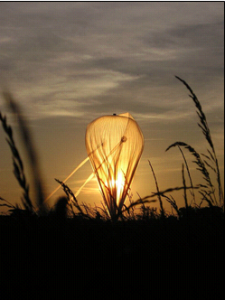 RESCOLL a participé au colloque sur les plastiques oxobiodégradables qui s’est tenu au CNEP à Aubière les 9 et 10 avril.
RESCOLL a participé au colloque sur les plastiques oxobiodégradables qui s’est tenu au CNEP à Aubière les 9 et 10 avril.
RESCOLL a présenté les résultats obtenus avec son Client le CNES sur l’utilisation de polyéthylène oxo-dégradable pour la fabrication des enveloppes de ballons stratosphériques ouverts. L’idée de cette étude est de trouver un moyen de simplifier la mise en décharge du ballon une fois ce dernier collecté après sa mission. En effet, le ballon est un assemblage de plusieurs type de matériaux, ce qui rend son recyclage difficile, et sa fin de vie par incinération dépend par ailleurs du pays qui héberge la mission. Une solution permettant à l’enveloppe du ballon de se fragmenter et d’être ensuite bio-dégradée est alors potentiellement intéressante.
